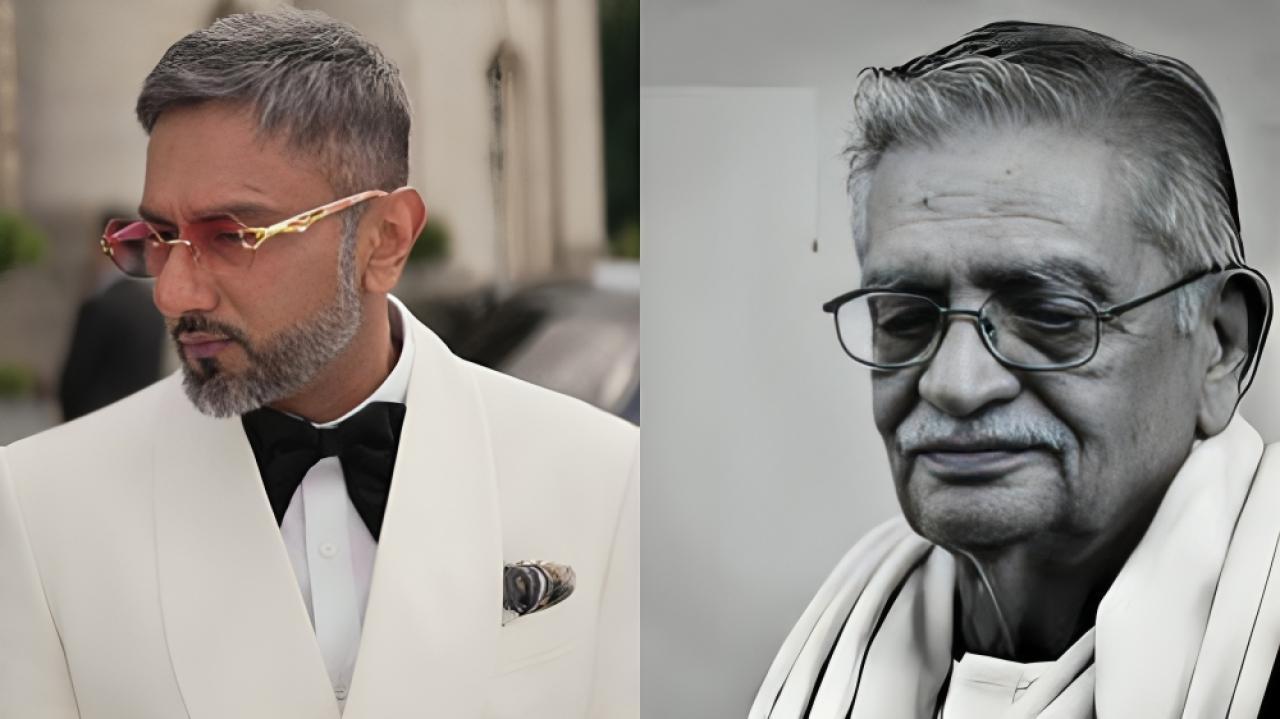
Renowned Indian rapper and singer Honey Singh has recently sparked controversy by labeling Gulzar’s popular Bollywood song “Beedi” as misogynistic. This declaration comes during the promotional activities for his newly released album, “Glory,” which dropped on August 26. The album is notable for featuring collaborations with artists from Latin America, Western Europe, and Indian folk singers.
During an interview with the Times of India, Honey Singh reacted to the criticism directed at the lyrics of his own songs by pointing out the lyrics from the acclaimed song “Beedi.” He stated, “I don’t give a s***, but I think I should answer this. Gulzar sahab likh rahe hain (Gulzar sir wrote), ‘Beedi jalaile jigar se piya, jigar mein badi aag hai’ (Beedi song lyrics), jigar kahan hota hai aurat ka (where is the chest)? This is misogynistic for me. ‘Zuban pe laga namak ishq ka’ (Beedi song lyrics), why is he talking about the tongue of a woman? Sirf main hi kyun galat hoon? Main pehle bolta nahi tha, aaj bol raha hoon yeh baatein. Main pehle jawab nahi deta tha toh log kehte thay ‘easy target hai, issi ke baare mein bolo’ (Why am I wrong only? I didn’t say before, I’m saying now. I never replied, so people said he is an easy target, let’s talk about him).”
Honey Singh, an artist who has often faced backlash for the perceived objectification of women in his songs, defended his lyrical choices by comparing them to those of other controversial yet accepted works in the industry. He mentioned, “I am not objectifying women, aise thodi na hota hai (it’s not that). Pehle kaise kaise gaane hote thay, woh ganon ki tarah liye jaate thay. Main ‘Choli Ke Peeche Kya Hai’ jaise controversial ganon ki toh baat hi nahi karta… par Honey Singh ko hi kyun gaali di jaati hai aur unko aap legend bolte ho? Modernise bhi ho rahe hain par backward bhi soch rahe hain (earlier what songs were there, but they were considered as songs. I don’t talk about controversial songs such as ‘Choli Ke Peeche Kya Hai’… but why is Honey Singh abused and they are called legends? We are getting modernized but thinking backward).”
The context of his comments relates to the ongoing debate about the portrayal of women in Indian music and film.
. Honey Singh’s career has repeatedly been mired in disputes surrounding his often explicit and bold lyrics. His stance underscores the complexities of modernizing content while also respecting cultural sensitivities.
“Glory,” his recent album, appears to be a significant step in his career, featuring a variety of musical influences and partnerships aimed at showcasing a global sound. By working with artists from different parts of the world, Singh emphasizes the universal appeal of his music.
The album includes collaborations with Latin American artists, which bring a fusion of reggaeton and Latin pop elements to the table. From Western Europe, the influence of electronic dance music (EDM) and contemporary pop is evident. Simultaneously, Indian folk singers lend their unique voices, integrating traditional Indian sounds with modern beats. This blend exemplifies Singh’s ambition to transcend traditional boundaries and appeal to a diverse audience.
His remarks regarding Gulzar’s “Beedi” song have led to a flurry of reactions in both media and public spheres. Many believe that such statements serve as a means for Honey Singh to deflect criticism from his work. Others see it as an important conversation starter about the often overlooked details in seemingly lauded cultural works.
Honey Singh’s contentious comments about “Beedi,” a track from the 2006 movie “Omkara,” specifically attacked its lines ‘Beedi jalaile jigar se piya, jigar mein badi aag hai.’ He questioned the intended meaning behind referencing a woman’s chest (‘jigar’) and the phrase ‘Zuban pe laga namak ishq ka,’ suggesting that it wrongly objectifies women.
The debate between yardsticks for contemporary and traditional forms of expression remains ongoing. While his statements have undeniable shock value, they also highlight the shifting landscape of Indian pop culture and its continuing struggle with modernity versus tradition.
In conclusion, Honey Singh’s outburst about Gulzar’s “Beedi” has undoubtedly stirred the pot. By drawing comparisons with his own work, he has reignited the conversation about misogyny in lyrics and double standards within the industry. As he continues to promote “Glory,” the music world waits to see how this controversy will unfold and impact his career.












